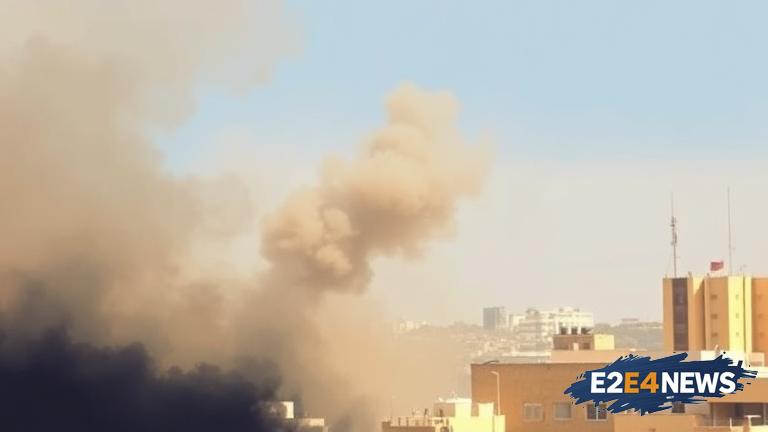The Gaza Strip, a coastal region bordering Egypt and Israel, is currently experiencing a dire humanitarian situation. The area has been plagued by poverty, unemployment, and a lack of access to basic necessities like food, water, and healthcare. The crisis has been exacerbated by the ongoing conflict between Israel and Hamas, the Islamist militant group that controls the Gaza Strip. Israel has imposed a blockade on the region, restricting the flow of goods and people, which has further worsened the humanitarian situation. The blockade has been in place since 2007, when Hamas took control of the Gaza Strip. The Israeli government has stated that the blockade is necessary to prevent Hamas from smuggling weapons and materials into the region. However, the blockade has had a devastating impact on the civilian population, with many struggling to access basic necessities. The humanitarian situation in Gaza has been described as ‘catastrophic’ by the United Nations, with many residents living in poverty and without access to basic services. The conflict between Israel and Hamas has resulted in the deaths of thousands of Palestinians and Israelis, and has caused widespread destruction to infrastructure and homes. The international community has called for an end to the violence and for a peaceful resolution to the conflict. The United States, European Union, and other countries have provided humanitarian aid to the region, but more needs to be done to address the crisis. The Israeli government has faced criticism for its handling of the situation, with many accusing it of exacerbating the humanitarian crisis. The government has stated that it is committed to finding a peaceful solution to the conflict, but has also vowed to protect its citizens from Hamas attacks. The situation in Gaza is complex and multifaceted, with many different factors contributing to the humanitarian crisis. The region’s economy is struggling, with high levels of unemployment and poverty. The healthcare system is also under strain, with many hospitals and medical facilities lacking basic equipment and supplies. The education system has also been affected, with many schools closed or damaged due to the conflict. The humanitarian situation in Gaza is not just a local issue, but a global concern. The international community has a responsibility to act and to provide support to those affected by the crisis. The United Nations and other organizations have called for an end to the violence and for a peaceful resolution to the conflict. The situation in Gaza is a reminder of the importance of diplomacy and international cooperation in resolving conflicts and addressing humanitarian crises. The global community must come together to support the people of Gaza and to work towards a peaceful and sustainable solution to the conflict. The Israeli government must also take steps to address the humanitarian crisis, including lifting the blockade and allowing for the free flow of goods and people. The international community must also provide more humanitarian aid to the region, including food, water, and medical supplies. The situation in Gaza is a complex and challenging issue, but with international cooperation and diplomacy, it is possible to find a peaceful and sustainable solution. The people of Gaza deserve our support and our commitment to helping them build a better future. The humanitarian crisis in Gaza is a stark reminder of the importance of protecting human rights and dignity, and of the need for international cooperation to address global challenges. The global community must act now to address the crisis in Gaza and to support the people affected by the conflict. The situation in Gaza is a call to action, a reminder of the importance of compassion, empathy, and humanity in the face of adversity. The international community must come together to support the people of Gaza and to work towards a peaceful and sustainable solution to the conflict.
